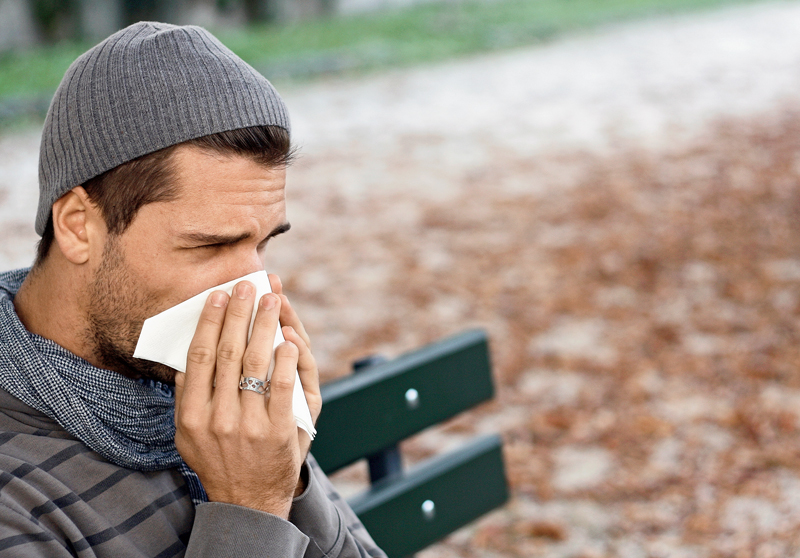Allergy Alert—The triggers behind a growing number of adults with allergies
By Mary Kay Kleist
October 2013 View more Health & Fitness

A growing number of adults are increasingly becoming allergic to things they’ve never had a problem with before. Experts warn that allergies can develop in adults at any age. If left untreated, allergies can cause fatigue, sleep disturbances, and mental fogginess.
Allergy Triggers
Most people who develop allergies as adults may have had an allergic episode earlier in life, but don’t remember it. For the very young, allergies often take the form of eczema. The allergies fade during their adolescent years, only to return later. But many times, adult allergy sufferers have no history of allergic sensitivity. “Allergies can come and go at any time. And they’re a little bit unpredictable. So, for example, we don’t really know why certain people may develop food allergy. It’s a little bit mysterious,” said Dr. Laura Rogers, from Laura Rogers Allergy and Asthma.
Pregnancy and Allergies
Allergies can also strike if you are exposed to allergens when your immune system is weakened. That’s why pregnant women often develop allergies after they give birth. “Pregnancy can change a woman’s allergy and asthma, and it’s unpredictable. What we typically tell women is that about a third of women’s allergies and asthma are going to change for the better, and about a third will stay the same, and about a third will get worse. You don’t know based on the woman and on the history of what they’re allergic to, which one that’s going to be, which way they’re going to go. And each pregnancy is different for them. So you can’t even predict it based on the last pregnancy, you just have to monitor it and watch out,” said Dr. Rogers.
Family History
Allergies are hereditary. “If there’s a family history of allergies, even if you don’t have a personal history of allergies, you’re more at risk for developing any kind of allergies, including food allergies. If you personally have a history of other kinds of allergies, such as hay fever allergies or animal dander allergies like cat allergies, you’re also at higher risk for developing other kinds of allergies such as food allergies,” said Dr. Rogers.
Hygiene Hypothesis
Allergists and immunologists are seeing more adults who’ve been blindsided by new allergies. Some experts suggest that people whose allergies begin in adulthood were not exposed to high levels of allergens as a child, or their immune systems became sensitive over the years. Scientists call this the hygiene hypothesis: The less you’ve been exposed to allergens in your life, the more likely you may be to develop allergies as an adult. Moving to a city or in a new house can set off allergies, so can having a new pet in the house.
Allergic Symptoms
Common adult allergy symptoms include chronic runny nose, a post nasal drip that causes you to clear your throat a lot, nasal congestion, sinus pain, itchy watery eyes, and an overwhelming sense of fatigue. “You can always consult with an allergist. One of the things that an allergist will want to know is about your family history and personal medical history, and then they can make a recommendation about whether any testing needs to be done,” said Dr. Rogers. At home, turn down the thermostat. Warm indoor temperatures, especially in the winter, can bring on a stuffy nose, irritated eyes, and wheezing.
About eight percent of adults in the United States have environmental allergies. “Allergies are somewhat unpredictable and can come and go, but typically they are strongly genetic. The severity of allergies can also vary over time but the most typical trend is for allergies to decline as we age,” said Dr. Rogers.
See more of CBS 2 Meteorologist Mary Kay Kleist’s reports here.


